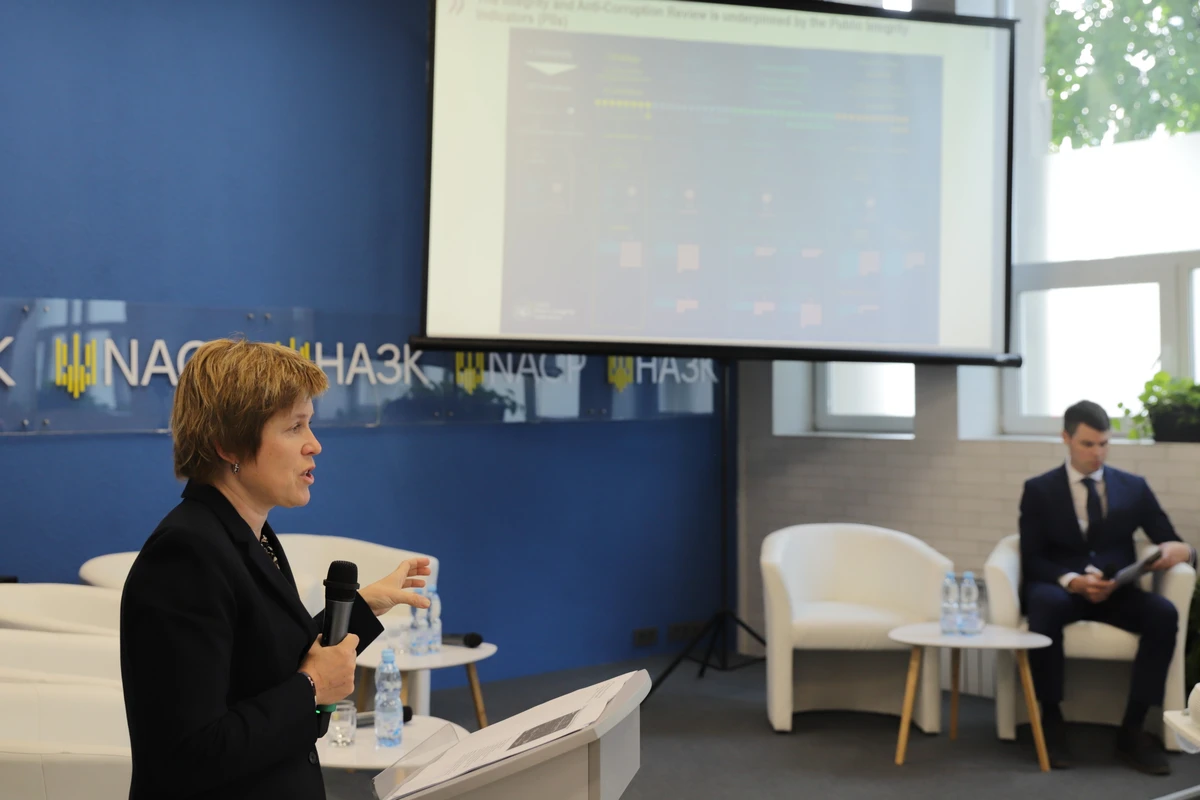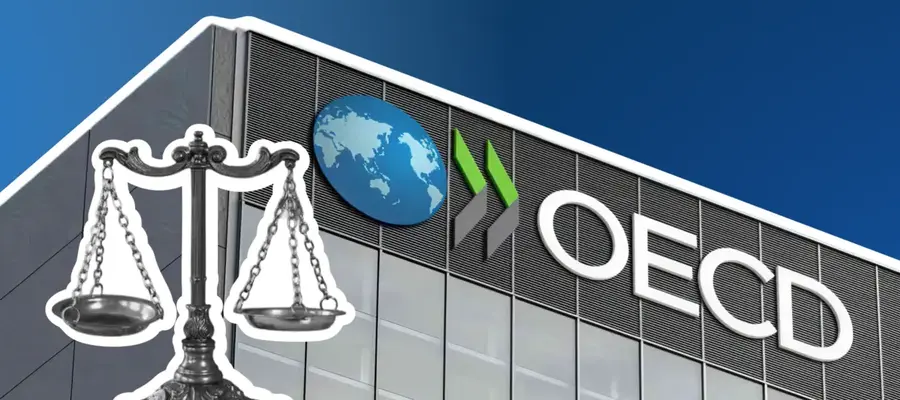Ukraine has demonstrated to the world that it can not only defend itself during a full-scale invasion, but also significantly bring its protection against corruption closer to the standards of the Organisation for Economic Co-operation and Development (OECD) and the European Union (EU). In the first review in Ukraine's history, experts noted significant progress in the development of anti-corruption policy and the system of public and business integrity.
This was noted by Viktor Palushchyk, Head of the National Agency on Corruption Prevention (NACP) during a public presentation of the ‘Conclusions of the OECD Review on Integrity and Anti-Corruption in Ukraine’.
"Ukraine has exceeded the average indicators of OECD member countries in many areas. In particular, in the areas of conflict of interest prevention, ensuring transparency of political party financing, effective management of corruption risks, protection of whistleblowers, etc.

The importance of the document lies in the fact that it not only allows us to have a comprehensive picture of our work and expand our own tools for developing a new Anti-Corruption Strategy and Action Plan for 2026-2030, but also contributes to the implementation of anti-corruption mainstreaming in the process of Ukraine's European integration,’ said Viktor Pavlushchyk.
NACP Head reminded that in October 2022, during the full-scale invasion, OECD recognised Ukraine as a potential member, launched an initial dialogue on accession and approved a four-year Programme for Ukraine. It should help implement the organisation's standards in various areas and pave the way for full membership. The phased implementation plan for this Programme, approved by the Ukrainian Government, identified specific practical steps and the state bodies responsible for their implementation. The National Agency is responsible for conducting the Integrity and Anti-Corruption Policy Review and for adhering to the OECD Council's recommendation on public integrity.

State Secretary of the Cabinet of Ministers of Ukraine Oleksandr Yarema noted that it is important to strengthen cooperation and integration with the OECD. According to him, the conclusions and recommendations of this report are a structured roadmap for further action. The implementation of these steps will make state institutions more transparent and the corruption prevention system more effective. Their implementation should become the basis for economic growth and European integration.
Deputy Director of the OECD Public Governance Directorate János Bertok noted that the OECD will continue to support Ukraine's efforts and initiatives in implementing the organisation's Public Integrity Indicators and will continue its cooperation. The indicators are a set of data designed to promote the dissemination of best practices in building integrity by comparing country performance and sharing best practices. These indicators help governments identify strengths and weaknesses in preventing and combating corruption.
‘Despite the state of war, Ukraine has achieved significant legislative and institutional changes in recent years. In many areas, Ukraine has reached above the average level of OECD countries. The review presented today will answer the question: how to move forward to implement the recommendations and consolidate efforts,’ said János Bertok.

Experts discussed key findings of the review on public integrity (assessment of policies and practices in the public sector) and business integrity (anti-corruption, analysis of corporate ethics, deregulation), Ukraine's progress in developing the necessary legislation and its implementation. Recommendations to be implemented include completing judicial reform, enforcing lobbying legislation, improving legal education, addressing conflicts of interest, and adopting necessary legislation to strengthen the legal protection of whistleblowers.
Julia Fromholz, Head of the Anti-Corruption Unit of the OECD Directorate for Financial and Enterprise Policy, presented the key findings of the Business Integrity Review.
‘Membership in the OECD Working Group on Bribery will help attract investment and create a transparent business environment,’ said Julia Fromholz.

The document contains key findings and practical recommendations to support Ukraine's further alignment with OECD standards and best practices. In particular, it addresses the development of comprehensive legislation, strengthening integrity in the judiciary, improving control and audit, strengthening whistleblower protection, improving business integrity policy development, addressing bribery and extortion, strengthening anti-corruption compliance, promoting good corporate behaviour, etc.
The OECD materials are available here: in Ukrainian, in English.
A recording of the presentation in Ukrainian is available at link, and in English at link.
It should be recalled that Ukraine became the first non-OECD country to join the Public Integrity Indicators initiative and received high marks for its implementation.
NACP plays a key role in conducting the Review of Ukraine's Integrity and Anti-Corruption Policy. The Agency was designated responsible for conducting the Review by Resolution No. 1165 of the Cabinet of Ministers of Ukraine on 3 November 2023.
The OECD brings together 38 of the world's most developed countries. The OECD's goal is to create the best solutions for public policy that will promote economic prosperity, equal opportunities and well-being.














